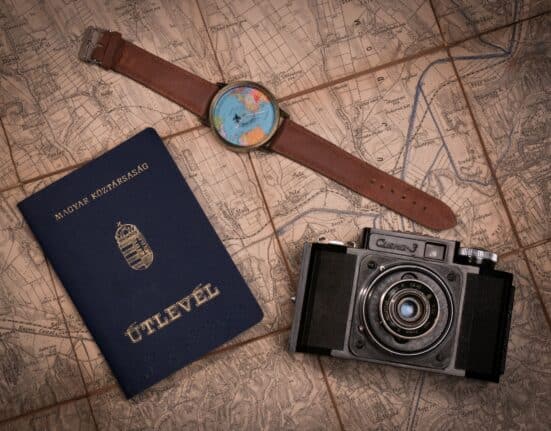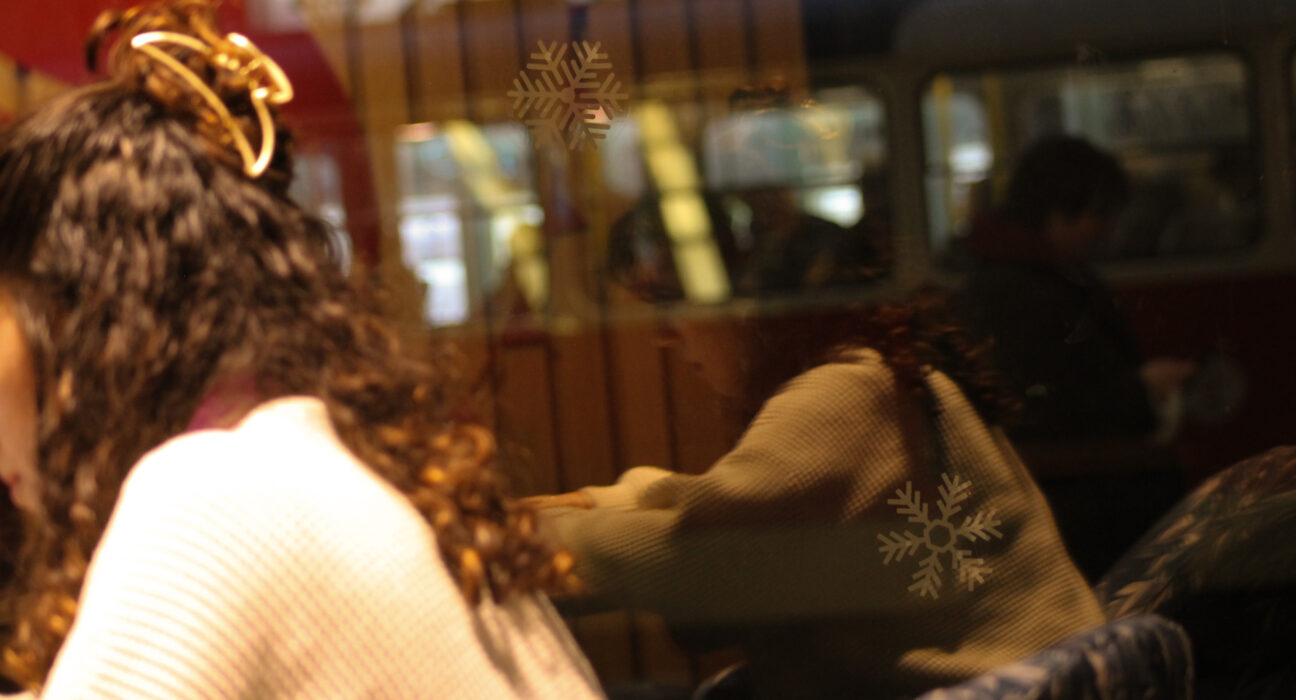PART 1
Berlin 2021. I started to look for a place to sit and warm myself. The snow had begun to intensify. Fluffy flakes drifted gently downward at first, but gradually they grew larger and more frenzied, swirling chaotically in the wind. I found myself in a café packed with people who were also looking for shelter from the heavy snow. What a day to travel in Berlin, I usually check the weather before traveling, but this time, I missed it.
‘You mind if I sit here?’ He asked, I looked up and around, trying to protect my personal space by checking for free tables. Alas! To my dismay, I offered the chair opposite me. He started commenting about how the weight of the snow seemed to grow heavier by the minute, pressing down on everything beneath it like a soft but inexorable force. Small talk and weather-talk, those mundane rituals of social interaction, have never held much appeal for me. ‘What made you visit this city?’ I asked, feeling ill-at-ease. ‘Healing.’ I scanned him quickly for any signs that might suggest an injury, and as he sensed my alarm, he hastened to reassure me. “Oh, not that kind of healing. I have been grappling with a memory from my childhood, one that I am not sure if it’s a fake or if it really happened.” He said, his tone gentle but resolute. The uncertainty of it all seemed to weigh heavily on him, like a cloak of doubt draped over his shoulders. And yet, even as he spoke, I could sense a glimmer of hope in his voice, a faint but persistent light that refused to be extinguished.
My 2nd cup of cappuccino.
The memory haunts him, a fragment of his past that refuses to fade away. He can see his younger self zipped inside a suitcase with his head poking out at an awkward angle. The memory is both hazy and clear at the same time, a mix of emotions and sensations that swirl together in a confusing jumble. Some days he feels like he was hiding inside the suitcase, seeking refuge from some unknown fear. Other times he wonders if he was intentionally placed there, like a pawn in some game he didn’t understand. Those little eyes of his younger self tell a story – fear, sadness, but also a strange sense of peace or perhaps innocence. But no matter how hard he tries to recall more details, the memory eludes him. He can’t remember what he was looking at, where he was or why he was inside the suitcase. All he has is this one small piece of memory, frozen in time like a snapshot. And yet, even as he struggles to make sense of it all, he senses that this memory holds within it a profound truth.
The snow fell infallibly, each flake swirling and dancing its way down from the heavens as if it knew that this was the only day it could ever fall.
PART 2
Embedded within each of us is a complex web of experiences and memories, woven together by the threads of our past. For some, these memories are like jewels, glittering and bright, evoking feelings of joy and wonder. But for others, memories are more like wounds – raw, painful, and difficult to bear.
Trauma, like a wound, persists long after the event that caused it has passed. After being left outside a building in Budapest to be given away, Dr. Gabor Maté, a renowned trauma and childhood development expert, concluded that events don’t cause trauma, but rather the meaning that a person associates with it. Trauma is not just about what happened to us, but what happened inside us as a result of those experiences. It is the story that we tell ourselves about those events, the meaning that we assign to them, that determines their impact on us. Looking at the façade of the building, Maté would feel the sense of abandonment, the feeling of being unwanted. It could have been a feeling of new adventure, or excitement for a holiday, however, combined with the stress of the ongoing holocaust, and the need of security, his brain associated the event with negative emotions. For some, a painful memory might be triggered by a particular place or song, while for others, the memory might fade into the background, almost forgotten, but the feeling forever lingers. It is the emotional memory that pains us more.
It is not necessarily the big events that leave the deepest scars, but rather the small ones – the moments of neglect, of abandonment, of feeling unwanted or unloved. Unmet physical needs such as environments that are unsafe or warmth that is not given translate into feelings of not being wanted or loved which in turn becomes embedded in a person’s emotional memory, shaping their view, and influencing their behavior. It is this subverbal memory that stays with us, long after the words and actions that caused it have faded from view.
PART 3
It was getting late, so we decided to brave the snow and catch the metro. When I asked what he would do if he would never be able to figure out what really happened back then, he said he already found out something better. For a very long time, he was desperate to find it out, but a better realization hit him. That that younger him could have suffered, but he will forever be grateful that he held on. That he survived. What matters most is the emotional memory rather than the physical one. Processing the emotional memory is easier than trying to figure out what happened that day.
‘What are your plans for healing here?’ I asked.
As we reached the station, the announcement for boarding the train echoed through the air. ‘Einsteigen bitte!’ (‘Please board!’)
‘I’m boarding the U-bahn train.’
‘Oh! I’m taking the S-bahn. So long.’
Photo: Xyza Vasily Dela Pena




